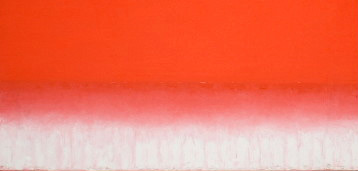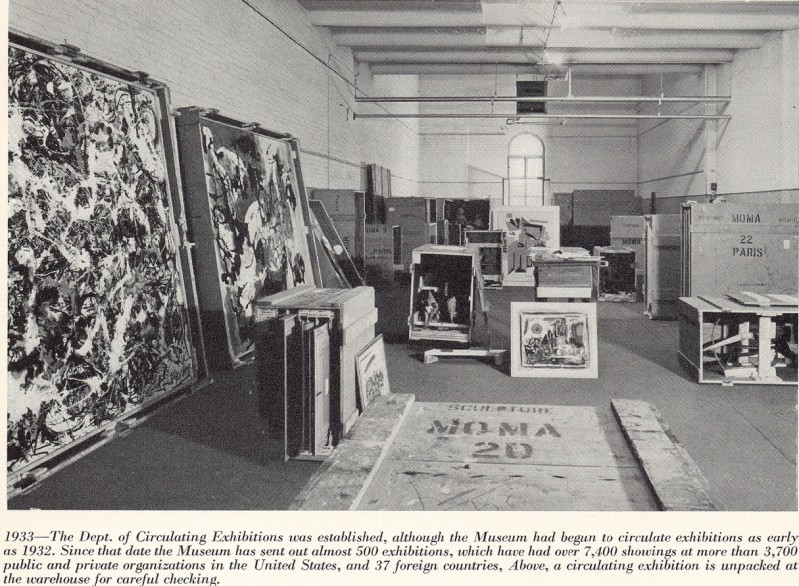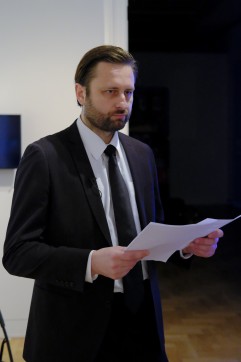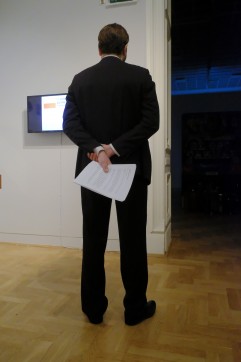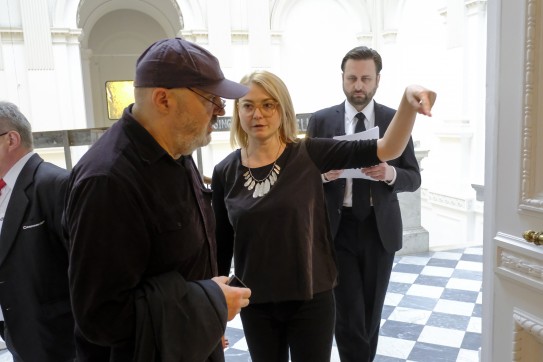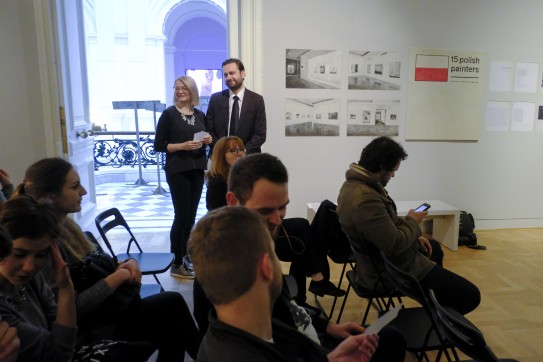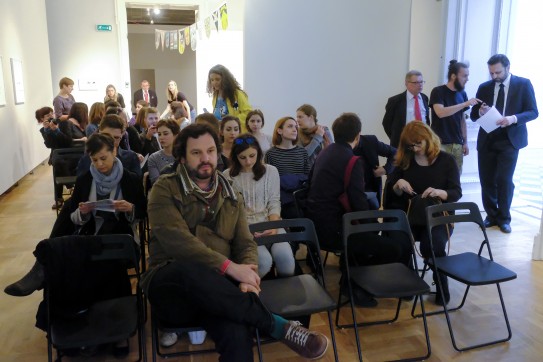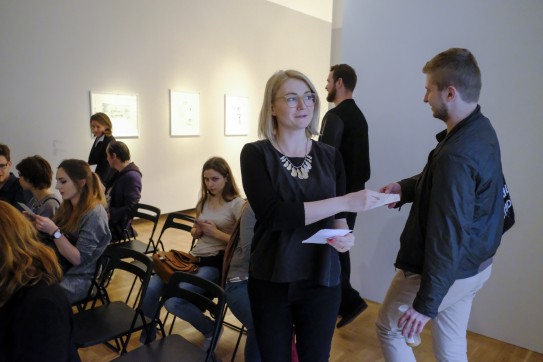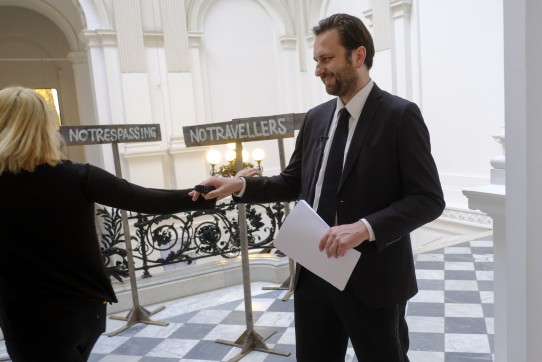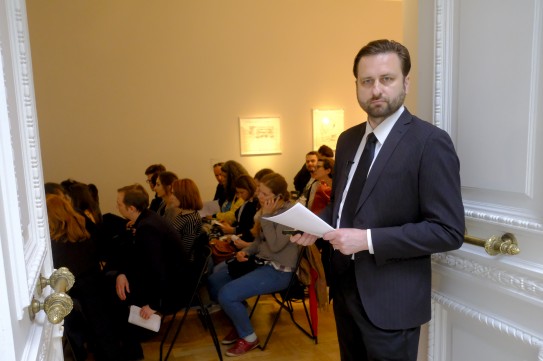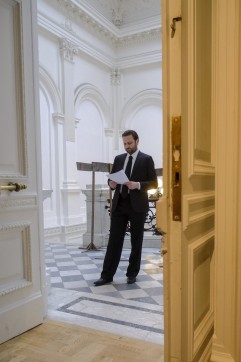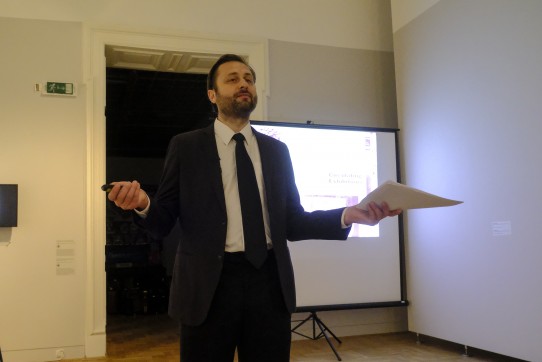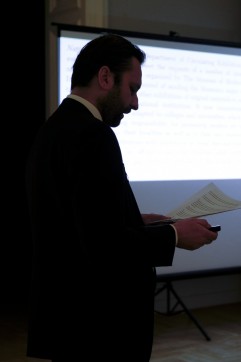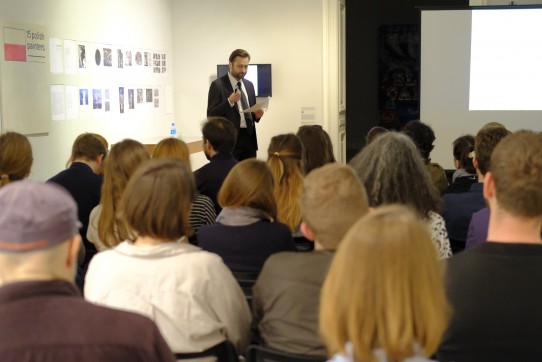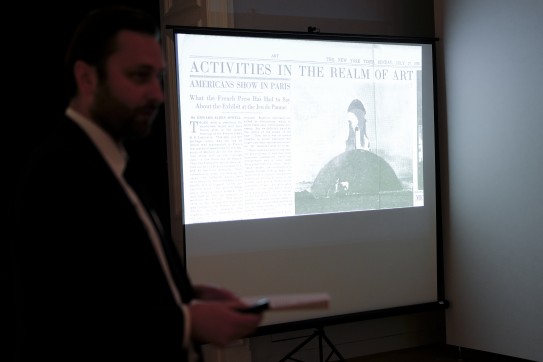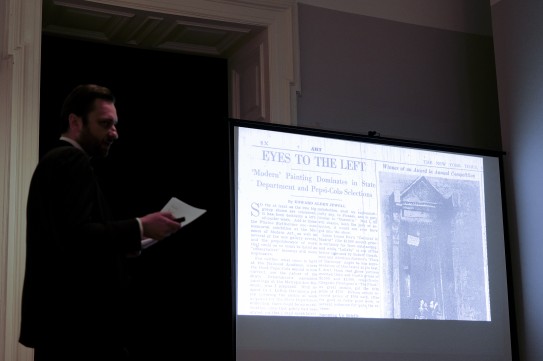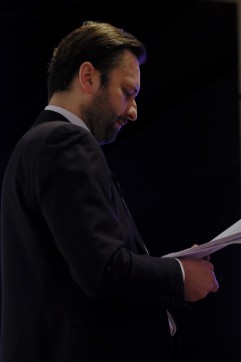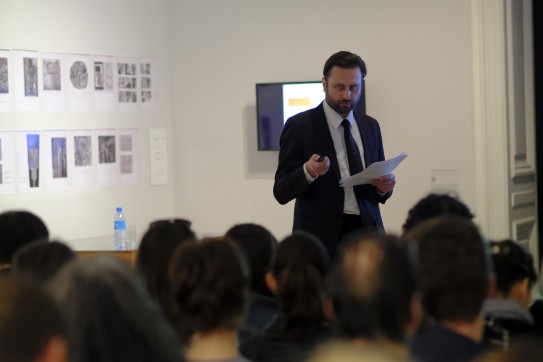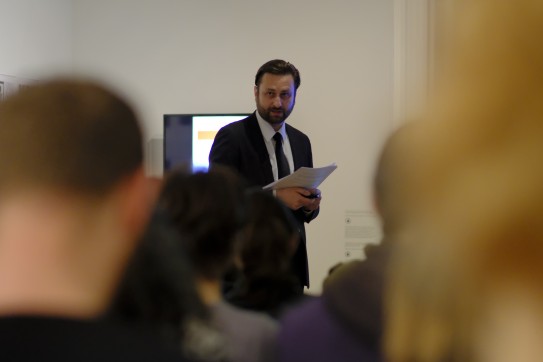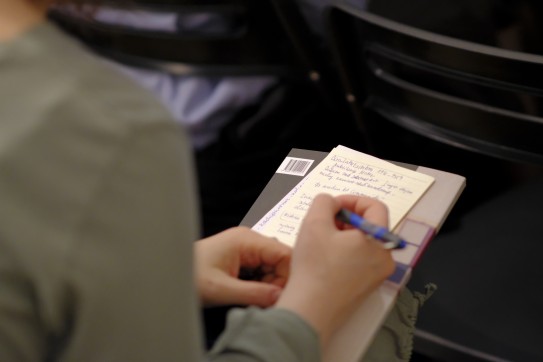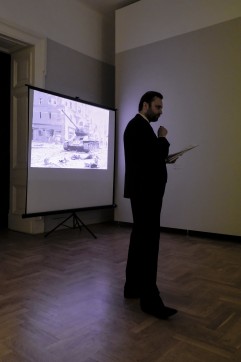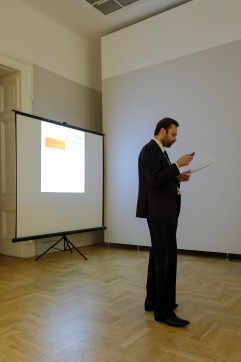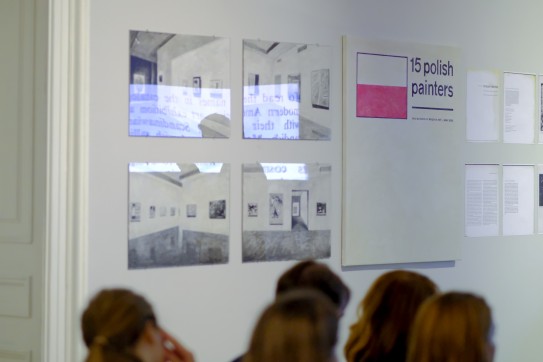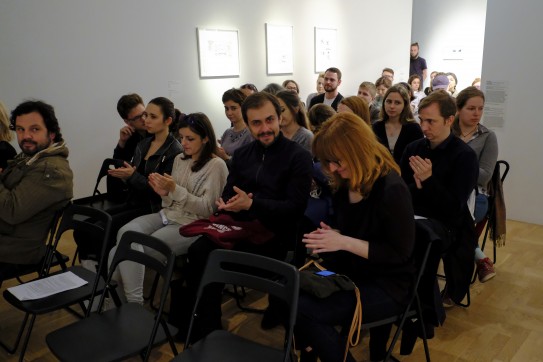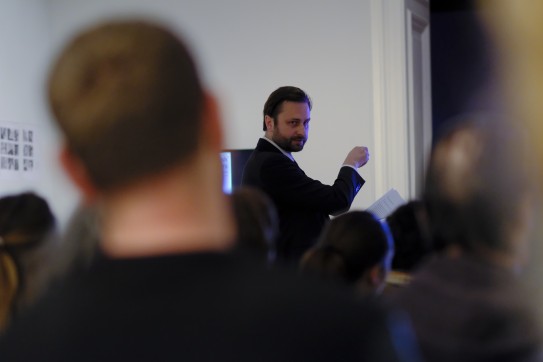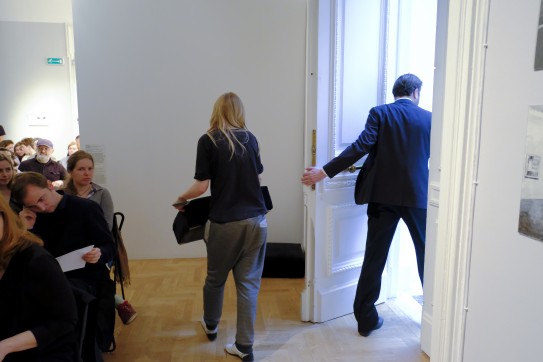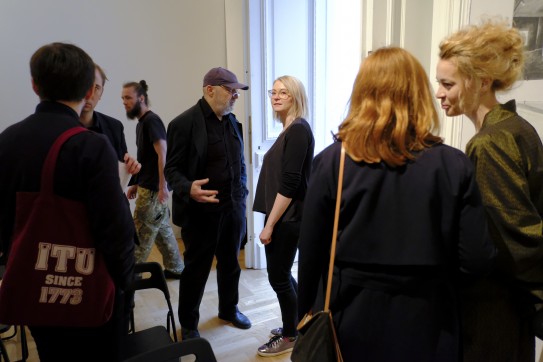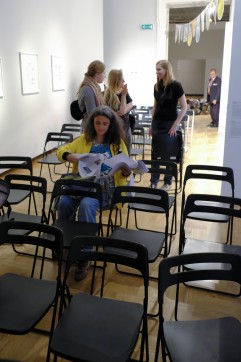About exhibitions that travelled Lecture by Porter McCray
Zachęta – National Gallery of Art
free entry
Lecture will be held in Polish and a transcript will be available in English
When he visited Warsaw in 1959, during the cultural ‘thaw’, Porter McCray was the first Western museum professional to travel to Poland since the Second World War. One of the immediate results of that visit was the exhibition 15 Polish Painters held at MoMA in 1961, which featured artists such as Tadeusz Kantor, Wojciech Fangor and Teresa Pągowska. In this lecture prepared especially for Zachęta, Porter McCray explains how traveling exhibitions changed the Europe’s image of modern art in the Cold War era. He also shares personal memories and photographs of this travels to Paris, Moscow, Belgrade, and Warsaw. The lecture is accompanied by an exhibition of documents related to 15 Polish Painters.
Porter McCray was the director of the The Museum of Modern Art (MoMA) International Program during the 1950s, when – during the early years of the Cold War – several important exhibitions of modern American art travelled through major European cities. Those were the exhibitions that helped established in post-war Europe a common cultural identity based on internationalism, modernism and individualism. In recent years, Porter McCray has become responsible for the traveling exhibitions of the Museum of American Art in Berlin. He helped preparing the MoAA exhibitions: Savremena umetnost u SAD shown in the Museum of Contemporary Art in Belgrade (2006) and Istanbul Biennial (2009) that was about the MoMA exhibition of American art that came to Belgrade in 1956, and Face to Face at the opening of the Garage Museum in Moscow (2015) that dealt with the famous American National Exhibition organized in the Sokolniki Park (Moscow, 1959). He also talked about the history of MoMA International Program in various lectures delivered in New York, Zagreb, Vienna, Beirut and Amsterdam.
-
 14.05 – 21.08.2016The Travellers
14.05 – 21.08.2016The TravellersThe exhibition looks at travel in a region where freedom to travel was, until recently, a luxury available only to the very few. The revolution of 1989 and the subsequent opening to the world and globalisation processes allowed citizens of the former Eastern Bloc personal mobility on an unprecedented scale. Participation in international exchanges contributed to the region’s identity today as much as the new political and economic order.
Zachęta – National Gallery of ArtZachęta
